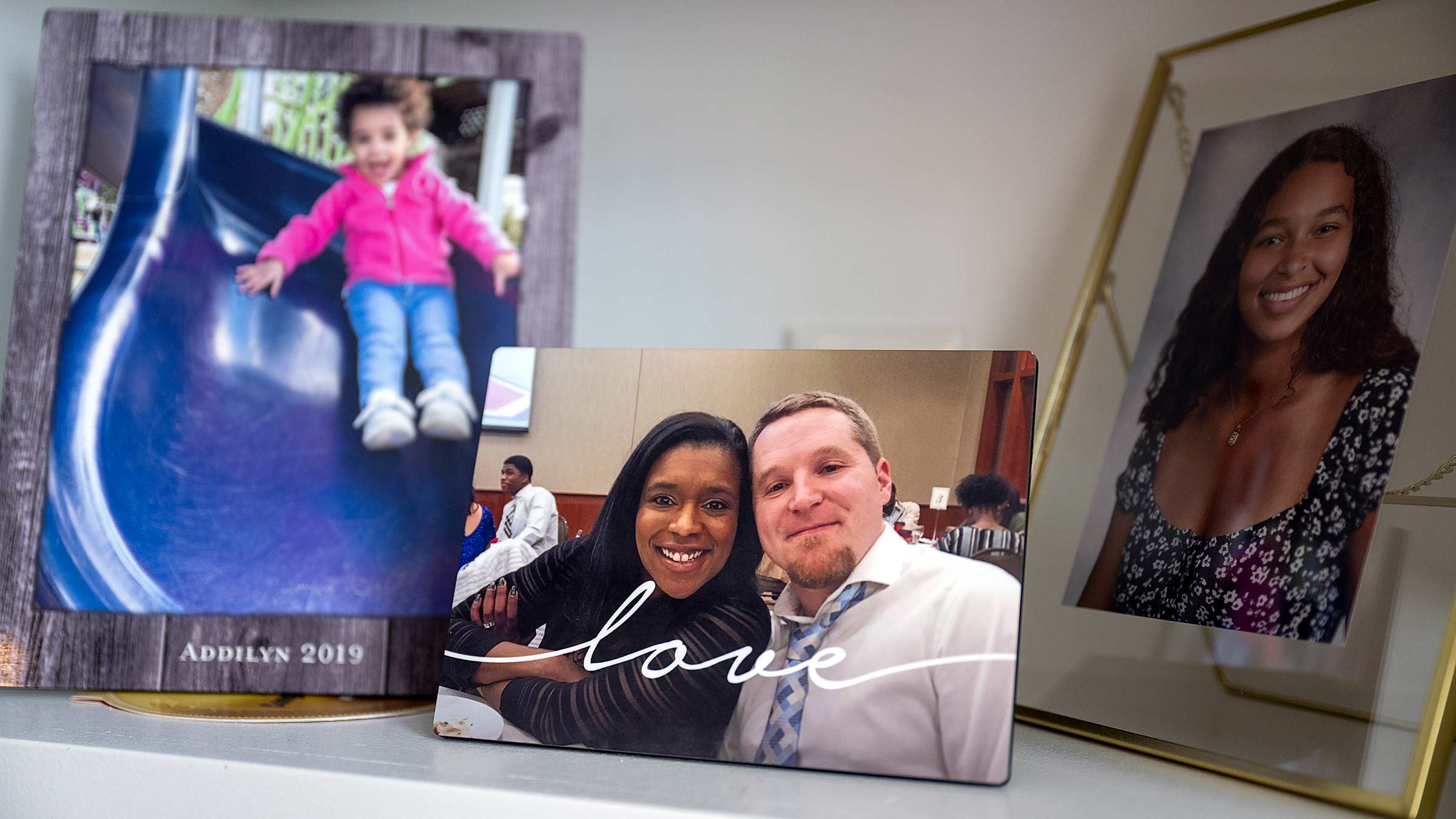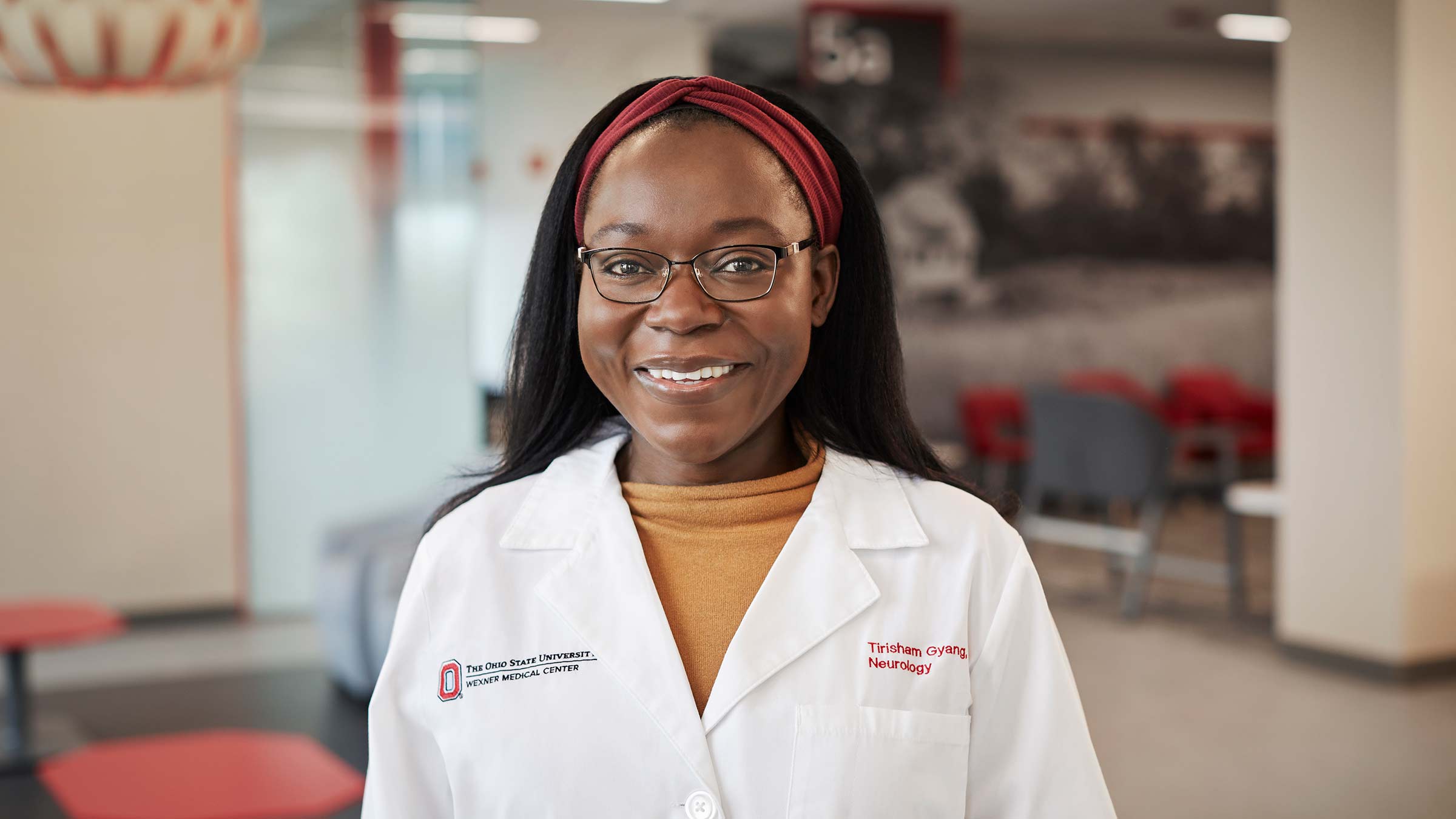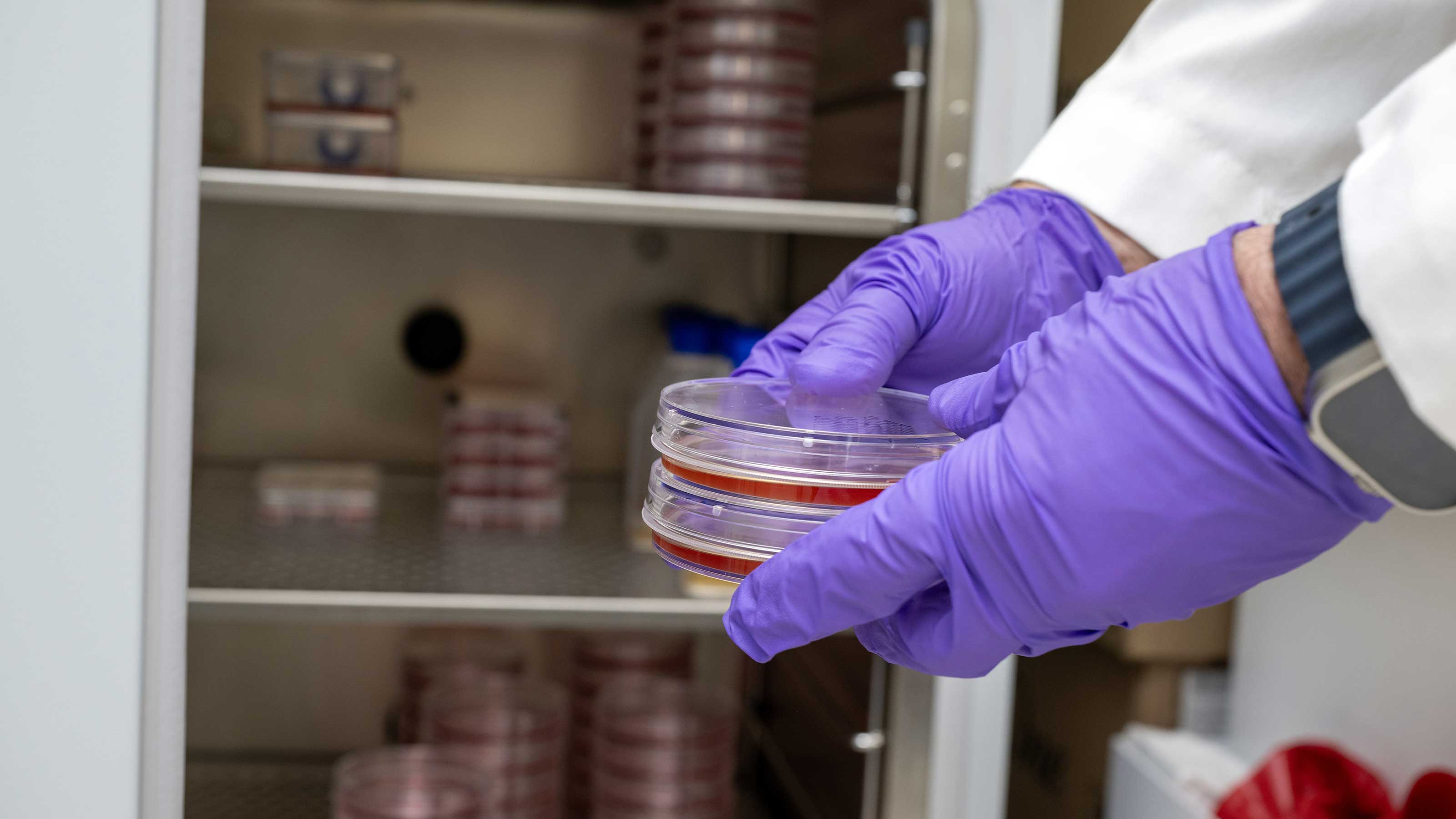Giving voice to Black patients with multiple sclerosis
MS is on the rise among Black people. Paula Cole is using her diagnosis and her platform to advocate for their voices in research and testing.
In the middle of the night, Paula Cole began feeling surges of panic, then every light hurt her eyes, as if she were staring at bright sunlight.
Keep the lights off, she asked her college roommates, while she tried not to go outside. For days.
“I thought I was actually going crazy,” she says. She was 19.
Then Cole had a hard time lifting the front part of her foot. It dragged and caused her to trip, making it tough to keep playing soccer while attending The Ohio State University.
Gaining a lot of weight from an antidepressant she had been prescribed, she spiraled, avoiding friends, avoiding talking to anyone. When she wasn’t in class, she stayed in her room.
“I remember my friend saying: ‘You’re not the same person.’”
And yet, Cole didn’t know how to return to the athletic and outgoing woman she’d been in high school and during her freshman year of college.

On her legs, she began to feel a sensation of pins and needles, and one morning she couldn’t move her legs to get out of bed. Strapped to a stretcher, she was carried into an ambulance. A series of hospital tests would follow, then the day she and her parents met with a neurologist. The diagnosis left her reeling: multiple sclerosis (MS).
“I checked out,” she says. “I turned to my parents and said, ‘Can we go now?’”
Cole imagined herself not being able to walk, stuck in a wheelchair most of her life. It felt like a death sentence.
Now, over two decades since her diagnosis, Cole not only still walks on her own but continues to play soccer. She advocates for people with MS, using her platform as a business leader to shed light on the growing prevalence of the disease in Black people.
The changing face of multiple sclerosis (MS)
MS was long thought to be a disease that mostly affected white women. But studies reveal an increasing rate of new MS diagnoses among Black people in the United States, particularly Black women.
“That was surprising to a lot of people,” says Tirisham Gyang, MD, a neurologist at The Ohio State University Wexner Medical Center and clinical assistant professor of Neurology at The Ohio State University College of Medicine.
“For years, MS was under-recognized in Black people. We don’t want to miss MS in anyone who has it.”

Among all races in the United States, MS is three times more common in women than in men. For those with MS, the symptoms vary. Some studies show that Black people experience more severe symptoms and decline more rapidly than white people with MS.
“Would that be because these Black patients are diagnosed late or some genetic factor? We don’t know the answer to that,” Dr. Gyang says.
What is certain is the sooner someone with MS is treated, the better they do. Medications now available can slow down the disease, which, as of yet, has no cure.
How MS affects the body
The immune system of a person with MS attacks the protective covering around their nerves. That, in turn, disrupts signals between the brain and various parts of the body. MS also damages or scars the brain, spinal cord and optic nerve connecting the brain with the eyes.
Someone with MS might have a numb or weak arm or leg, tingling, trouble with their vision, balance or walking, depression, memory lapses or other symptoms. They often come on suddenly, then sometimes go away, only to return later.

Cole has experienced a range of symptoms. The toughest were the periods of depression and when she couldn’t walk. She had played competitive soccer for years, then suddenly she couldn’t figure out how to use a walker. From wheelchair to walker to cane, she had to relearn to take steps on her own.
In her late 20s, Cole spent a few weeks in a nursing home, where she shared a room with a 92-year-old woman with dementia.
“The majority of the time I was in pure shock,” she says. “I kept thinking ‘How did I get here?’”
Although science can’t reverse any damage MS has already done, the many medications created in the past three decades can manage symptoms and significantly delay how quickly the disease advances. So, people with MS can live with fewer disabilities, Dr. Gyang says.
“We have medications now that change the course of the disease,” she says. “In the past, the time to get to a wheelchair was a lot faster.”
The ups and downs of MS
Cole has relapsing remitting MS, the most common type. Her symptoms come and go. She’s had times when she’s played and coached soccer, and finished triathlons and races, and periods when she couldn’t stand up out of a chair. She’s soared in her career, now an executive at Nationwide, while having regular migraines, insomnia, challenges forgetting words and bouts of depression.
Many have asked her how she kept going.
She credits “the village” that supports her: her husband and two daughters who take on more responsibilities when Cole needs to do less, the National Multiple Sclerosis Society, the neighborhood moms who help out, friends, doctors and the nurse who sat with her the day she cried while receiving her first infusion of an MS drug. It was a turning point.
For almost two decades, Cole didn’t take any medicines, though her doctors and her parents urged her to. After years of working to lose the 120 pounds she’d gained on an antidepressant, she feared regaining it all.
“So I continued to brush off my neurologist whenever he said, ‘It’s a good time to start medication.’”
That is, until she met Dr. Gyang. When Cole moved back to Ohio from Maryland in 2020 to become a vice president at Nationwide, she looked for a neurologist who was a Black woman. Immediately, she felt a connection with Dr. Gyang.

“I’ll never forget my first appointment with Dr. Gyang,” Cole says. “I’m sitting there excited to see a Black, female doctor, a neurologist, an MS specialist. Dr. Gyang walked in. I’m smiling and I said, ‘Look at us. You can help. I have it. Let’s try to make this happen.’”
When an MRI Dr. Gyang ordered revealed new lesions on Cole’s brain and spinal cord since the previous MRI, she expressed concern.
“She ultimately said, ‘It’s not good for you to continue without some medication. There are so many treatments out here now.’”
Advances in MS treatment offer chance to stop progression
Eventually, Cole agreed to take a medication that would work with her immune system to fight MS. That, plus additional medicine to ease her symptoms, has helped make the day-to-day hurdles of MS more doable. And none of the medications caused her to gain weight.
“I’m living a better life now,” she says.
Still, Cole fears at some point she may have to scale back, that MS will chase her down. That in time, her mind or her body might not be as quick as they were last week, a month ago, several months ago.
Which is why she feels an urgency to do what she can to help others with MS. As a district activist leader and trustee on the Ohio Board of the National MS Society, she advocates at the state and national levels for policy change to make MS medication more affordable and to promote research toward a cure.
“I’ve lived more than half my life with MS,” she says. “I think I’ve found my calling in how I can give back. I want to make sure our voices are heard.”
She wants people to know about the prevalence of MS in Black people and ensure they’re a part of studies for new treatments.
She wants others with MS to know they’re not facing the baffling condition alone.
Although Cole still, at times, feels cramps in her legs and has to work her way around words that elude her, she feels hopeful. All because just a couple of years ago, while in and out of depression, she made a choice to confront MS with medication rather than let it take its course.
“I know, at times, my daughters must be thinking, ‘Mom has this uncurable disease.’ In the past I’d get so down about that,” she says. “Now it’s almost celebratory. We can think about a future where Mom is there, and Mom is walking, and Mom is participating.”

MS doesn’t have to control your life
Ohio State’s MS experts help you regain control and find the best treatments for your lifestyle.
Learn how




